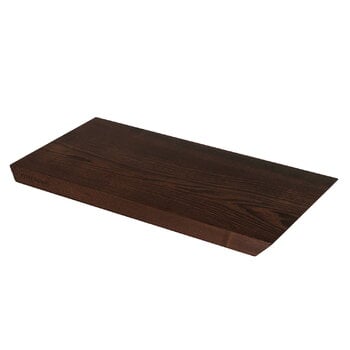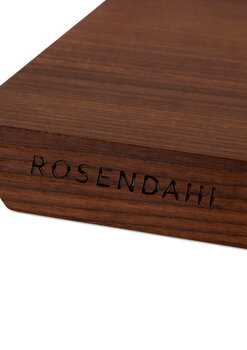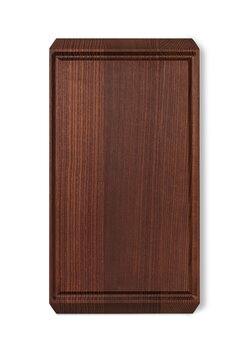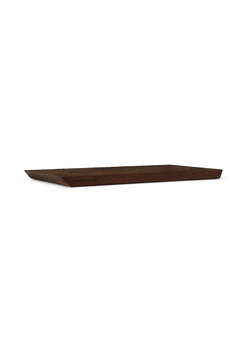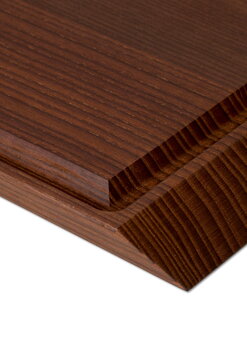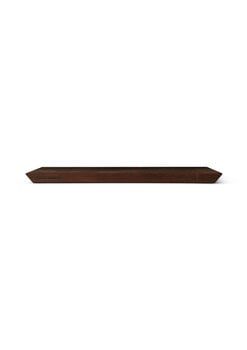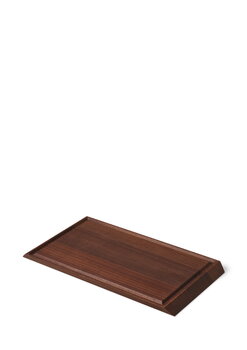Rosendahl's RÅ cutting board is a stylish and functional choice for the kitchen. The cutting board is reversible, with a juice trill on one side to collect liquids. The cutting board has slightly curved sides to ensure a firm grip when cutting and make it easier to lift and move. The elegant cutting board also serves as a tray.
Designed by Jesper Vollmer, the cutting board is made of thermo-ash. The heat treatment makes the material very strong and gives the cutting board its beautiful deep dark brown colour. Due to the natural material and the manufacturing process, colours will vary in tone and darkness, making each cutting board unique.
